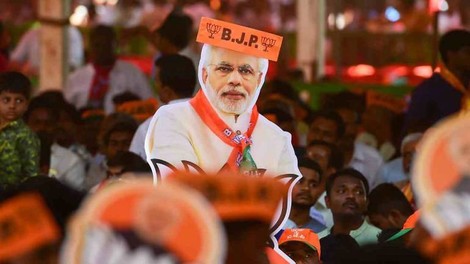Your podcast discovery platform
Curious minds select the most fascinating podcasts from around the world. Discover hand-piqd audio recommendations on your favorite topics.

piqer for: Climate and Environment Globalization and politics
Raksha Kumar is a multimedia journalist focusing on human rights, politics and social injustices. Since 2011, she has reported for The New York Times, BBC, Guardian, TIME, South China Morning Post, Foreign Policy, Scroll.in and The Hindu.
In March 2018, she was awarded the National Foundation for India Media Award for her reportage on land rights in India. In 2017, she was shortlisted for Kurt Schork Memorial Awards in International Journalism. For her work on land conflicts in India, she was awarded the Chameli Devi Award for Outstanding Media Personality in 2016.
As a reporter, her focus areas are land and forest rights of the most vulnerable communities. However, since these issues cannot be looked at in isolation, Raksha found herself increasingly reporting on armed conflict around resource extraction in places like Chhattisgarh and Kashmir.
In 2015, she wrote, shot and directed a documentary film on Rationalists in Contemporary India. It was aired by India's public broadcaster, Doordarshan. The film has been screened in 29 locations across the country until now.
The same year, Raksha was selected as a Chevening Fellow by the University of Westminster to research on Hindu Right in the UK. This helped Raksha build on her post graduate dissertation which was on Hindu Fundamentalists in India.
With a Fulbright Scholarship for Leadership Development, she went to the Columbia University in New York City to pursue a Masters in Science. As a student, she was offered the Scripps Howard Fellowship to report from Israel and the West Bank. Since 2011, Raksha has reported from 11 countries across the world.
Raksha worked as an editor at NDTV, leading English news channel in India. She was the editorial head of a two-hour prime time news show, where she lead a team of about 20 junior journalists.
A graduate of Lady Shri Ram College in New Delhi, Raksha was a dedicated student and a passionate public speaker.
Indian Elections: What to Expect
About 900 million voters will vote in India starting tomorrow. About the same number of people live in all of Europe.
The Bharatiya Janata Party, which is ruling the country currently, is the richest party in India. This tips the electoral balance heavily in their favour.
So it becomes important to understand what is the incumbent party offering? In their election manifesto, the BJP mainly promises lower taxes and building of a controversial temple.
Social media had a field day when it was discovered that, in a major goof-up, the BJP manifesto stated that the party's government has made strict provisions "for transferring the laws in order to commit crimes" against women, instead of checking crimes against women under its chapter on Women Empowerment.
Typos did not end there. "The BJP manifesto contained another mistake in the same chapter under the subtitle 'Ensuring a dignified life for women' where it promised time-bound investigation and "trail" for rape instead of "trial" for rape."The podcast though goes beyond these mistakes and looks at the promises it makes, if elected to power. Which are these:
Launch a National Urban Mobility Mission
Ensure 50 cities covered with metro network in (the) next 5 years
Construct 60,000 km of national highways in the next 5 years
Double length of national highways by 2022
Ensure conversion of all viable rail tracks to broad gauge by 2022
Ensure electrification of all rail tracks by 2022
A dedicated freight corridor project by 2022
Double the number of functional airports in the next 5 years
Double port capacity in 5 years
